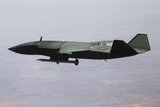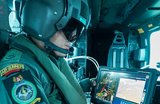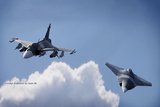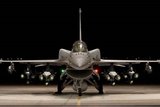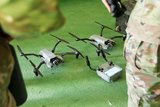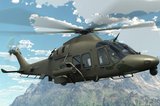US confirms transfer and training of Kazakh Raven UAVs
Lightweight and simple to operate, the Raven is rucksack portable and can be hand-launched for day or night observation. (Image: Aerovironment)
The US Embassy to Kazakhstan revealed last Wednesday on Twitter that it had completed training with the Kazakh Border Guard for operating AeroVironment Raven UAVs.
The Kazakh Border Guard will operate the RQ-11s to assist in monitoring Kazakhstan’s borders, which it shares with five nations: China, Kyrgyzstan, Russia, Turkmenistan and Uzbekistan.
The quantity, value and specific type (RQ-11A or RQ-11B) of the UAVs have not been disclosed.
The Raven B, also known as RQ-11, is a UAV that provides a low-altitude ISR capability for commercial and military applications with line-of-sight ranges of up to 10km.
According to Shephard Defence Insight, More than 20,000 Raven UAVs are in service worldwide in service with 18 confirmed international customers, and many more rumoured.
US interests in the Central Asian region have declined following the withdrawal from Afghanistan, although many nations in the region still represent valued non-allied partners.
In 2018 Uzbekistan received four RQ-11 Ravens from the US and in 2020 Kazakhstan and the US agreed on a contract valued at $128 million for the sale of King Air B300ER Scorpion aircraft.
Related Equipment in Defence Insight
More from Air Warfare
-
![World Defense Show 2026: L3Harris to achieve full-rate production of Viper Shield soon]()
World Defense Show 2026: L3Harris to achieve full-rate production of Viper Shield soon
L3Harris has completed the production candidate software load for its Viper Shield airborne electronic warfare system and is conducting sea trials with its VAMPIRE counter-drone system.
-
![Singapore Airshow: Red Cat ramps up portfolio development amid “key” APAC opportunities]()
Singapore Airshow: Red Cat ramps up portfolio development amid “key” APAC opportunities
In the wake of its 1,842% year-on-year revenue increase in Q4 2025, Red Cat sees mass opportunities in the Asia-Pacific region as the company eyes an ongoing production increase and market growth.
-
![India confronts widening military helicopter gap as border demands intensify]()
India confronts widening military helicopter gap as border demands intensify
India’s major helicopter programmes are under the spotlight as the country turns to global partners to replace legacy helicopters with growing urgency.








